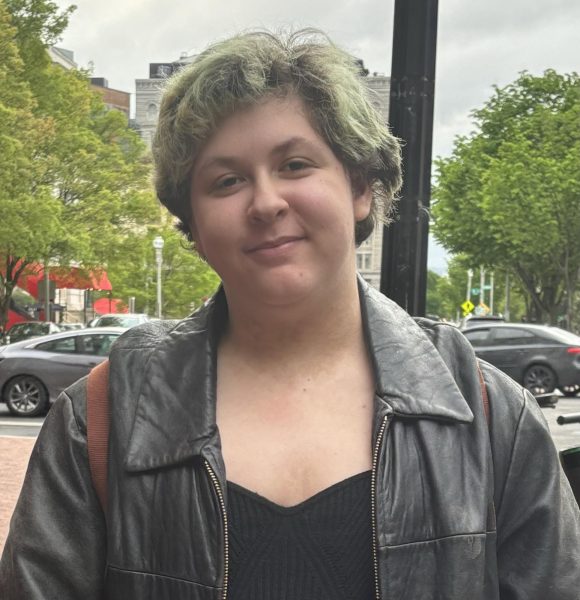Fridging: The Mistreatment of Women and Marginalized Characters in Comics
Photo by Anh Tuan To on Unsplash
January 28, 2022
Trigger Warning: This article contains mentions of rape, sexual assault, violence against women and death.
In Green Lantern Vol.3 #54, released in 1994, Kyle Rayner (also known by his superhero alter ego, Green Lantern) comes home to find no sign of his former girlfriend-turned-trainer, Alexandra DeWitt. What he does find, though, is a note reading “Surprise for you in the fridge. Love, A.” Though he finds the handwriting on the note strange, he nonetheless goes to check the refrigerator. What he finds is Alexandra’s body in the fridge, her having been killed by the villain Major Force.
Alexandra’s death is just one in a long list of women and marginalized characters killed, maimed, or otherwise abused to cause emotional pain to or further the stories of the often-white, mostly-male protagonists of superhero comics. These characters, their trauma, and their pain are nothing more than plot devices to writers. They’re not allowed character development or happiness if it doesn’t concern the protagonist.
This trope is known to many as “fridging” – a reference to Alexandra DeWitt’s death. This term was coined by comic book writer Gail Simone for the website Women in Refrigerators in early 1999. The problem with “fridging” is not only that it treats women and other marginalized characters as disposable, but also that it “creates the position that women are most impactful, most important, and most relevant to the men around them when they’re being violently tortured or murdered.”, as Aja Romano and Alex Abad-Santos say in their article “Fridging,” One of Storytelling’s Most Noxious Tropes, Explained. Despite the relatively recent coining of the term, the trope is nothing new in comics.
Take Gwen Stacy, for example. Gwen, the girlfriend of Peter Parker (AKA Spiderman), is introduced in The Amazing Spider-man #31 (December 1965). She is a classmate of Peter’s at Empire State University and is a part of a tumultuous relationship with him. In The Amazing Spider-man #121 (June 1973), the Green Goblin (Norman Osborn) kidnaps Gwen and lures Spider-man to a tower of a bridge. As Spider-man and Green Goblin fight, the Green Goblin throws Gwen off the tower of the bridge, and Spider-man shoots a strand of the web at her feet, stopping her descent. He initially thinks he saved her, but soon realizes that she’s dead and swears revenge on the Green Goblin as he cries over her body.
Her brutal death serves as a catalyst for Peter’s self-hatred and emotional turmoil, and also to get her out of the picture so Peter can be with fan-favorite Mary Jane Watson, who is first introduced in a cameo role in The Amazing Spider-man #25 (June 1965) and then fully appears for the first time in The Amazing Spider-man #42 (January 1967).
Writers on the series felt that there wasn’t any further to go in Gwen and Peter’s relationship. A writer for the story, Gerry Conway, explained in the comic book collection The 100 Greatest Marvels of All Time that Gwen and Peter were a “perfect couple”, but taking that relationship to the next level (such as revealing his identity as Spider-man or getting married) would “betray everything that Spider-Man was about”. She died simply to further Peter Parker’s story. She was treated as nothing but a plot device.
Leading women aren’t exempt either.
Women In Refrigerators hosts a disturbingly long list of female characters that have been subjected to horrors throughout comic book history, including Scarlet Witch (Wanda Maximoff), who has suffered mental breakdowns and loss of her children, Starfire (Princess Koriand’r) whose long comic book history has included her being raped, tortured, enslaved and forced into marriage twice, and Batgirl/Oracle (Barbara Gordon) who was viciously attacked by the Joker and left paralyzed for the rest of her life. Women in Refrigerators’ list hasn’t been updated since 2000, though, so the record ends at the turn of the century for their compilation. However, that doesn’t mean that deaths of women, in addition to other marginalized characters in comics, have stopped.















































Autumn Peace • Jan 31, 2022 at 1:40 PM
Really good, I love comics so nice to see something on it. I agree almost Entirely with the article, my one little issue is it doesn’t mention in fairness that charecters are killed constantly in comics, for no reason other than plot, despite who it is, (usually bringing them back because comics) Though overall it’s great and makes sense.